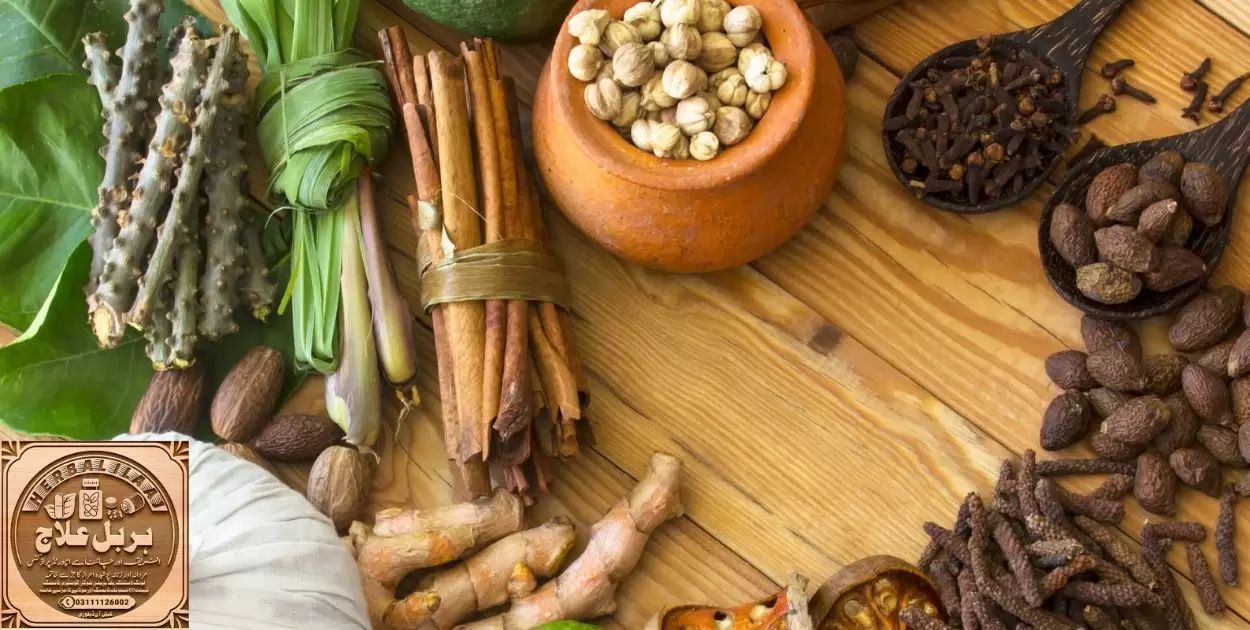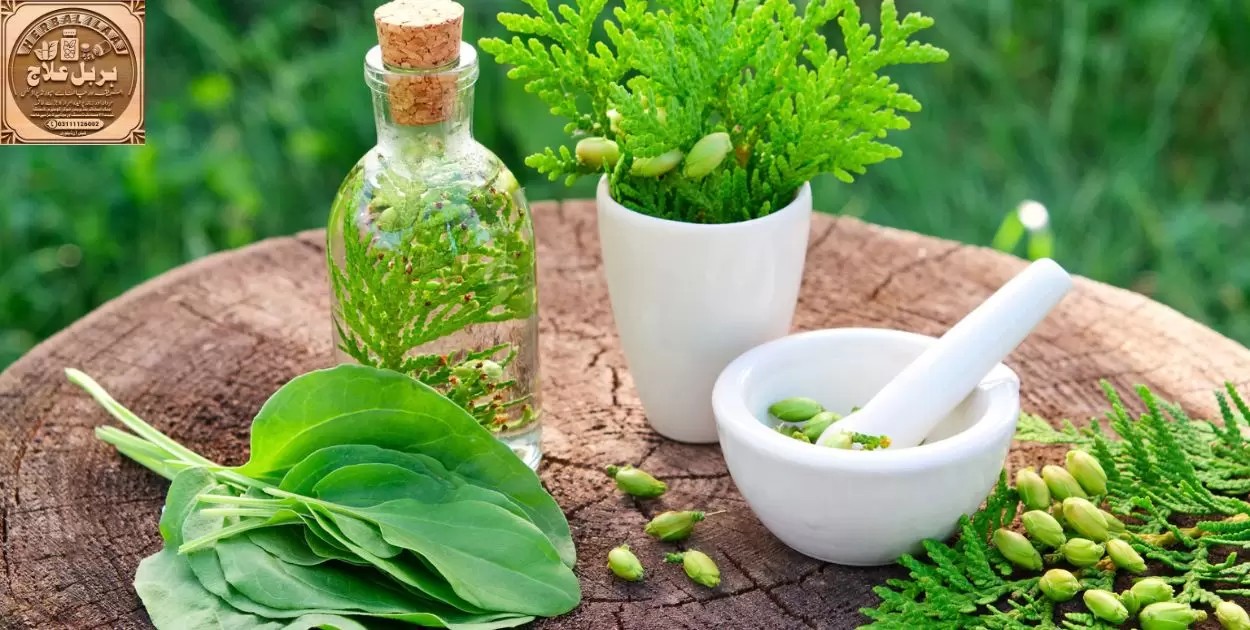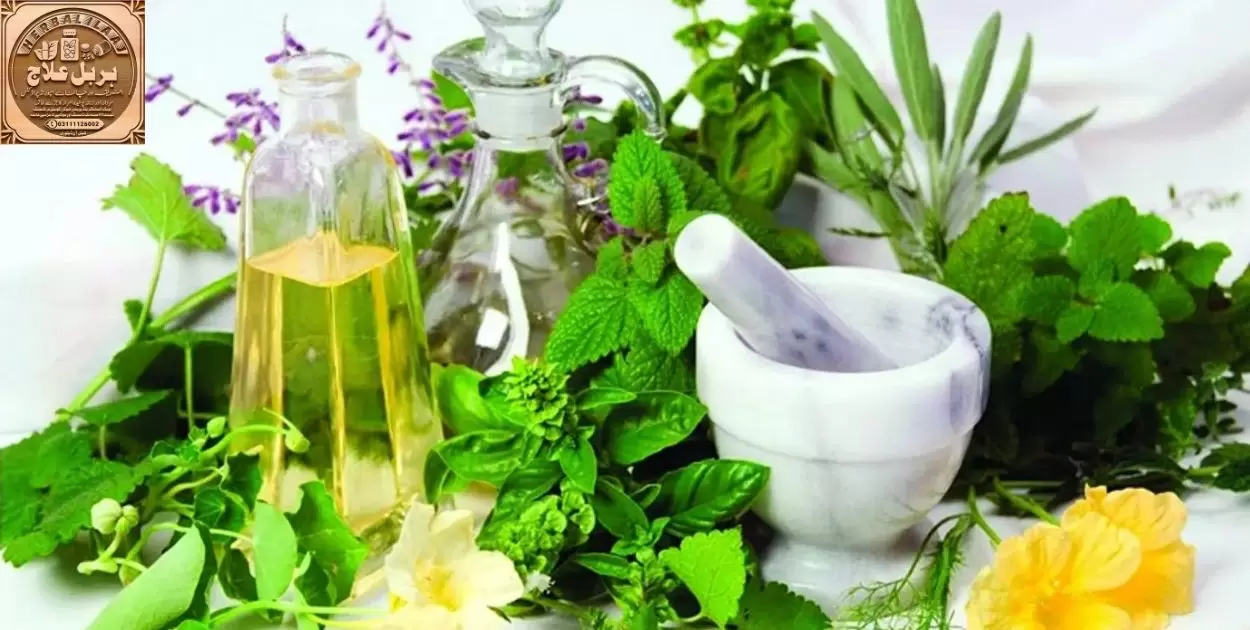Herbs to increase appetite in adults are plants that help boost appetite. Some herbs that increase appetite naturally are ginger, mint, garlic and basil. Consuming these herbs helps adults feel hunger when the body needs food.
Sometimes adults lose their appetite due to stress or illness. Herbs to increase appetite in adults can help those struggling with lack of hunger. Ginger, mint and other herbs send smells that make food smell delicious. This helps signal the brain that it is time to eat.
Garlic is one herb that increases appetite in adults. It contains nutrients and compounds that help digestion. Better digestion allows the gut to communicate clearly with the brain about hunger. Adults can consume garlic in small quantities daily to experience a natural boost in appetite. Basil and mint also contain properties that help the stomach digest food properly to induce feelings of hunger.
What Herbs Are Best For Appetite Stimulation?
Ginger, mint, garlic and basil are some herbs to boost appetite. These plants aid digestion and signal the brain for hunger. Ginger is very effective for improving appetite. It has compounds that settle stomach issues. Mint soothes digestion and its aroma makes food smell nice. Garlic contains nutrients for gut health. A balanced gut allows clear signs of hunger. Basil is refreshing and settles the belly for feeding time. These top herbs support appetite naturally.
Ginger Herbs For Appetite
Ginger is a go-to for appetite problems. It settles an upset tummy nicely. Compounds in ginger stimulate enzymes for nutrition absorption. Better absorption means complete messages to the brain. Ginger juice or tea can lift appetite fast. Consuming ginger biscuits or cookies also gives appetite a boost. The taste and smell entice hunger nicely.
Minty Herbs For Appetite
Mint is soothing and brightening herb. It cools and calms the belly for eating. Mint’s refreshing scent makes food very inviting. Even smelling mint triggers hunger. Chewing some mint leaves can settle stomach aches. Mint flavor perks up appetizing salads and meals too. The flavor and aroma remind the body to eat well.
Garlic Herbs For Appetite
Garlic is full of vitamins to maintain gut health. A balanced gut needs to signal for eating properly. Garlic supports microbial balance for peak nutrient uptake. Best nutrient absorption maintains correct communication to the brain. Minced garlic lifts the spirit and smell of savories. Consuming it regularly stimulates steady appetite.
Basil Herbs For Appetite
Basil leaves are a light and bright herb for appetite needs. It tones the belly gently and soothes away hunger hesitance. Only a few basil leaves give meals an upbeat flavor and aroma. The perky taste and smell entice interest in eating. Having pesto or basil garnishes daily keeps appetite cheery and stable.
How Do Appetite Boosting Herbs Work?
Herbs lift appetite via scent, taste and effects. Certain compounds stimulate hunger-guiding enzymes. Beneficial enzymes boost absorption and signals to the brain. Herbs also tone the gut and simplify sending clear messages. An efficient route allows the body to request eating on time. Smell and flavor add appetite appeal too.
Which Herbal Scents Stimulate Appetite?
Ginger, mint, garlic and basil contain natural oils that arouse the senses. These oils stimulate regions of the brain linked to flavor and hunger. The olfactory bulb receives herb scents to initiate interest. Even smelling food makes the stomach prepare to receive nutrition. Certain herb aromas speak to the unconscious mind to eat up.
The Scent Of Ginger Herbs
Ginger emits a spicy-fresh aroma that captures attention. Its reviving scent communicates silently to the brain’s appetite centers. Ginger awakens awareness of the abdominal need for good stuff. Simply breathing its bubbles through the nose stimulates hidden hunger cues secretly. That’s why ginger is an excellent natural appetite activator from smell alone.
The Aroma Of Mint Herbs
An invigorating aroma flows from mint that rouses the instinct to refuel. Mint smells like the promise of refreshed energy and well-being. Its brisk yet easing scent implies replenishing benefits are near. No wonder mint wakes up taste buds and fuels the fires of appetite effectively from olfactory perception only.
The Smell Of Garlic Herbs
Thanks to its powerful yet savory fragrance, garlic demands respect in the herb kingdom. The unmistakable essence of garlic primes hidden desires for hearty, health-giving fare. Its odor speaks nutrition in a language the subconscious instantaneously comprehends. Little wonder garlic simply smells like supreme sustenance triggering automatic appetite.
The Fragrance Of Basil Herbs
Fresh basil brings a summery fragrance to the table and tummy. Its elegant floral aroma highlights potential pleasures yet to come. The soulful offering of basil hints at tastebud excitement and digestive satisfaction ahead. No surprise then that inhaling basil’s alluring essence primes the pumping of gastric juices and elevates appetizing anticipation.
What Nutrients In Herbs Induce Hunger?
Herbs contain vitamins and minerals that nourish digestion. Good gut function ensures effective messaging to announce when to eat. Ginger aids hunger with nutrients like vitamin C. It scavenges free radicals stressing the belly. Mint has refreshing vitamin A for protective gut lining. Garlic offers selenium for robust gut flora to absorb food optimally. Basil contributes magnesium that relaxes the stomach and eases appetite signaling.
Which Herbal Compounds Aid Digestion?
Special compounds in herbs settle digestive issues for appetite. Gingerols in ginger soothe stomach discomfort letting the gut rest between meals. Mint’s menthol relaxes intestinal contractions for eased digestion. Allicin in garlic kills unfriendly bacteria upsetting the microbiome. Eugenols from basil balance the belly environment and strengthen hunger cues. These key substances maintain appetite naturally.
Nutrients In Ginger Herbs
Ginger brings vitamin C that shields stomach cells from issues obscuring appetite. It supplies potent polyphenols reducing gut irritants too. These antioxidant nutrients reinforce ginger’s ability to clear disturbance and respark real hunger promptly. With ginger’s support, healthy stomach operations send exact eating requests to the brain.
Elements In Mint Herbs
Mint contributes menthol activating enzymes easing the digestion process. It offers copper assisting stomach acid production for optimal nutrient breakdown. More complete breakdown lets the gut pass maximum nutrition information to appetite areas upstairs. These factors within mint simplify keeping regular appetite in form.
Properties Of Garlic Herbs

Allicin in garlic fights infection maintaining safe gut flora balance. It gives selenium stimulating flora health and communication skill. In order, garlic builds efficient vitamin production and strong intestinal messaging of nutritional demands. These intrinsic garlic qualities help sustain an even appetite comfortably.
Compounds In Basil Herbs
Basil contains eugenol reducing gut inflammation to relieve unease. It presents magnesium soothing bowel contractions for calm digestion. With no belly tension, appetite centers get clear nutritional updates. Basil also donates limonene helping remove intestinal buildup confusing hunger signals. These constituents assist stable appetite all month long.
Do Appetite Herbs Help With Stress Or Illness?
Certain herbs remedy appetite issues related to stress, sickness or improper diet patches. They heal gently without medication side effects. Ginger, mint and garlic regulate digestion upset under pressure or wellness gaps. Basil provides relaxation without drowsiness when appetite flags due to tension too. Their natural relief restores usual hunger responsibly.
Can Herbs Alleviate Lack Of Hunger Due To Health Issues?
| Herb | Benefit |
| Ginger | Soothes stomach upset and digestive distress which can diminish appetite during illness. |
| Mint | Refreshing aroma helps relieve nausea which sometimes suppresses hunger. Chewing mint leaves can calm an upset stomach. |
| Garlic | Boosts beneficial gut bacteria and support digestive health, helping the body find its normal appetite even when feeling unwell. |
| Basil | Calms stomach tension and stress in the gut which may muffle hunger signals when the body isn’t feeling its best. The scent also relieves anxiety. |
certain herbs can gently restore natural hunger cues by easing physical issues or tensions caused by temporary illness that disrupt normal digestion and appetite signaling in the brain. Their nourishing compounds aid overall health too.
Ginger Herbs For Stress And Sickness
Under strain or illness, ginger cools inflammation or pressure hurting the gut. It relaxes spasms stopping digestion. Ginger’s compounds steady a queasy stomach to reestablish balance. As comfort returns, the belly resets typical appetite cues. Whether stress or tummy trouble, ginger’s nature gently restores normal hunger effectively.
Mint Herbs For Poor Appetite From Illness
Garlic Herbs When Not Feeling Well
During poor health attacking appetite, garlic’s properties cleanse possible gut toxins. They optimize microbiome welfare when imbalances weaken it. As flora heal, they resume usual nutrient synthesis and messaging. Garlic’s regular use while unwell secures the belly ecosystem until usual hunger naturally takes over again.
Basil Herbs When Under Stress

In stressful times damping down appetite, basil lifts tension without sedation risk. It decreases inflammation stress may cause damaging gut balance. As inflammation fades, digestion gets back to typical operations. Basil also gives relaxation without stupor, permitting appetite’s return without worry or distraction interference. It takes the edge off pressure troubling hunger.
How Should You Take Appetite Boosting Herbs?
Consuming herbs in meals, drinks and cooking infuses their goodness for steady appetite support. Intake depends on each herb and individual requirements balancing benefits versus amount. Adjust according to age, body size and tolerance too for ultimate safety. Combined properly, selected herbs safely maintain or restore optimal, natural hunger in balance with daily needs.
What Is The Best Way To Consume Appetite Stimulating Herbs?
Some ways are adding ginger and mint to tea, basil to water or garlic to meals. Chewing fresh ginger eases uneasy tummies, as nibbling mint settles nausea. Chop garlic cloves into savories, or toss sliced basil on dinners. Blending these into salad dressings too infuses nutrition to leaves. Moderate consumption inside regular recipes carries herb enthusiasm and maintains hunger naturally in a balanced way.
Consuming Ginger Herbs Daily
Sipping ginger tea with breakfast starts the day in digestive balance and ready for daily nutrition demands. Adding fresh slices to soups or chicken delivers its compounds with warmth and food for gentle yet consistent appetite care. Taking ginger capsules between meals keeps the belly stable between periods of intake without risk of excess. Daily ginger easily maintains regular, steady hunger normally.
Incorporating Mint Herbs Into Meals
5 easy tips for incorporating mint herbs into meals
- Add a few torn mint leaves to salads for a fresh flavor boost. The aroma will stimulate your appetite.
- Stir mint into pea or green bean dishes right before serving for a minty sweetness.
- Toss chopped mint into hummus or tzatziki for a refreshing sandwich spread.
- Sprinkle fresh mint over grilled salmon or chicken for a light herby seasoning.
- Steep mint tea and enjoy a cup with meals for digestive benefits.
Eating Garlic Herbs In Small Amounts
Sprinkling minced garlic onto pasta supplies its properties supporting regular appetite signaling. Using garlic-infused olive oil in salad dressings spreads its gifts through vegetable mixtures. Spreading veggie crackers with a touch of garlic butter enlivens a light snack maintaining well-aligned hunger. Daily sprinkles of garlic keep appetite consistently well-tuned naturally.
Enjoying Basil Herbs Regularly

Tossing basil into marinades adds its relaxing compounds during cooking for eased intake. Throwing fresh leaves over pizzas infuses every bite for prolonged calm. Chewing a basil leaf after meals assists digestion winding down properly as appetite departs peacefully. Regular basil habit maintains serene, predictable appetite flow effortlessly.
Frequently Asked Question
What Herbs Are Most Effective For Stimulating Appetite?
Ginger, mint, garlic and basil herbs are among the most helpful natural appetite boosters.
How Long Does It Take For Herbal Appetite Stimulants To Work?
The appetite-lifting effects of herbs like ginger can often be felt within 30 minutes of consumption.
Is It Safe To Use Appetite-Boosting Herbs Long-Term?
Yes, when used appropriately as part of a balanced diet and lifestyle, herbs are generally considered very safe to support appetite over the long run.
Can Appetite Herbs Help With Loss Of Hunger Due To Illness Or Stress?
Certain appetite-boosting herbs such as ginger, mint and basil can help gently restore natural hunger when it is decreased due to temporary stress, illness or other causes.
What Is The Best Way To Take Appetite-Stimulating Herbs Every Day?
Adding fresh or dried herbs to meals, drinks and cooking on a regular basis is an effective method to experience the appetite-lifting benefits of natural herbs.
Conclusion
In closing, certain herbs can offer natural support to increase appetite in adults struggling with lack of hunger. Ginger, mint, garlic and basil are some of the top herbs that contain compounds and nutrients to gently boost digestion and stimulate appetite signaling in the brain. When consumed as part of a regular diet and lifestyle, these herbs can help steadily and safely restore normal appetite function without unwanted side effects.
For adults experiencing occasional loss of appetite due to stress, illness or other temporary factors, incorporating selected herbs like ginger, mint and basil into meals and drinks may help ease physical issues disrupting hunger cues and calm mental tensions that dampen the desire to eat. With consistent yet moderate use of appetite-stimulating herbs , natural hunger signals can usually return to regular patterns in a balanced and nourishing way.





